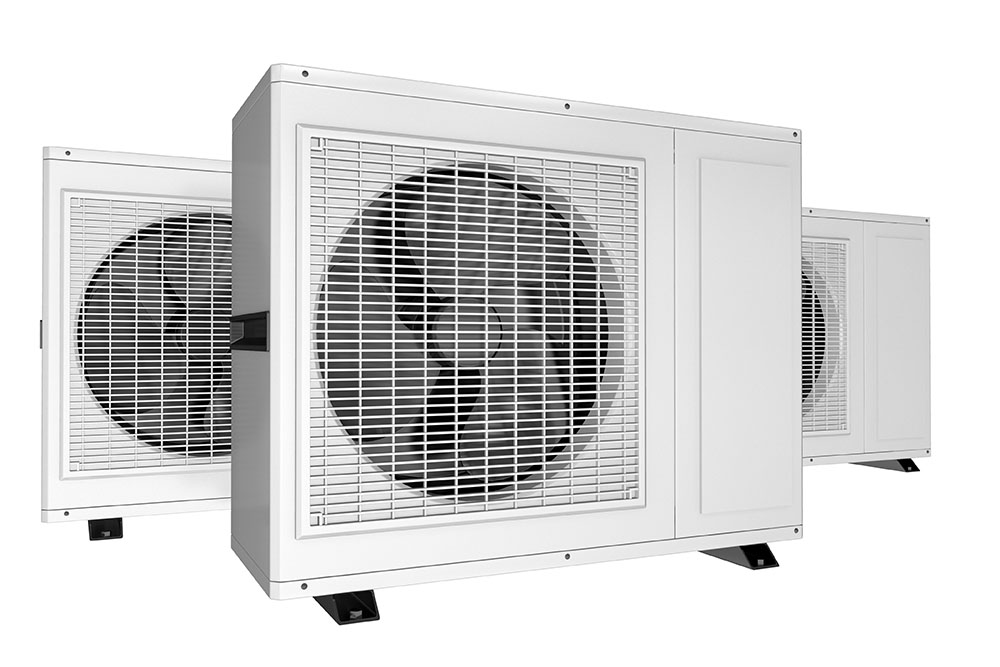

Consider an upgrade if your current heating system makes you feel chilly and uncomfortable. Heating accounts for a significant portion of your energy expenses, so selecting the most efficient system is crucial. However, this does not necessarily mean switching to a different type of system.
It is important to carefully weigh your options and consider the factors specific to your home, climate, and budget. Converting from forced air to central heating or vice versa is not recommended, as the benefits do not typically outweigh the cost. Instead, consider upgrading to a more efficient version of your existing furnace or boiler when repairs become too costly.
To assist with your decision-making, we have provided a summary of the most commonly used heating systems, including their advantages and disadvantages.
Furnaces – Also referred to as forced air systems, furnaces are the most widely used heating systems in the United States, known for their reliability and cost-effectiveness. Gas furnaces are evaluated for efficiency through their Annual Fuel Utilization Efficiency (AFUE) rating, which indicates the proportion of energy converted into usable heat.
When faced with the need to replace your furnace, the good news is that modern furnaces are more efficient than their predecessors, with some premium models reaching an impressive AFUE rating of 97 percent. To ensure maximum efficiency and longevity, it is crucial to select a furnace that is appropriately sized for your home. This will minimize stress on the system and avoid any energy waste.
Advantages:
- Cost-effective installation
- Dependable and low maintenance
- Possess a prolonged lifespan, especially for electric models
- It can be adapted to include air filtration and purification
- Widely installed in most homes, making replacement more straightforward.
Disadvantages:
- May emit higher levels of allergens
- Susceptible to heat loss through ducts and within the household
- Natural gas-powered furnaces pose a potential hazard for fire or carbon monoxide poisoning
- Electric furnaces offer improved safety but come with higher operating costs.
Heat Pumps – An energy-efficient solution for heating, cooling, and humidifying your home, heat pumps utilize existing environmental temperatures to function.
There are three heat pumps: air-source, split ductless, and geothermal. Air-source heat pumps are the most typical and transfer refrigerant between the outdoor unit and indoor air handler. At the same time, split ductless systems have multiple indoor air handlers controlled by a remote. Geothermal systems are the most efficient but are not typically practical or affordable for most homeowners. Factors such as size, noise level, and efficiency ratings (measured by HSPF for heating and SEER for cooling) should be considered when selecting a heat pump.
Advantages:
- The initial cost of installation can be high
- Not always the best option for very cold climates
- Some systems can be noisy
- It can be less effective than other systems in extreme temperatures
- Requires a backup heating source during extremely cold weather, which adds to the cost of ownership.
Disadvantages:
- More costly upfront compared to other heating systems like forced air or central heating
- It may not be suitable for smaller properties
- Operating fans can generate noise
- Requires regular maintenance, which is more frequent compared to other systems
- A supplemental heating system may be required to supplement the heat pump in areas with extremely low temperatures.
Boilers – are heating systems that use water to generate and distribute heat throughout a building, using pipes and radiators. They can be powered by natural gas, electricity, or propane and employ various methods to distribute heat, including steam radiators, hot water radiators, and hydronic radiant floor heating.
Steam radiators are traditional metal devices in older buildings, while hot water radiators are a more recent and versatile option. Hydronic radiant floor heating offers efficient heat distribution by treating the floor as a giant radiator, utilizing tubing under the flooring. However, this type of heating system is costly to install and replace.
Like furnaces, boilers are rated based on their Annual Fuel Utilization Efficiency (AFUE) score, indicating their energy efficiency.
Advantages:
- Boilers are known for operating more quietly compared to forced air systems.
- The system’s nature of distributing heat through water minimizes the amount of dust and allergens circulated, resulting in improved air quality.
- Boilers can be upgraded to serve as a dual system, heating your home and water supply.
- In certain scenarios, boilers can be more efficient than forced air systems.
Disadvantages:
- The initial expense of purchasing and installing a boiler system is often higher than that of a forced air system
- A damaged or aging system can result in water leaks and potential property damage
- Natural gas is the main power source for boilers, which may not be accessible in all locations
- Boilers may not be necessary or cost-effective in regions with relatively mild winters.
Contact us to receive your quote and book your HVAC services today.
